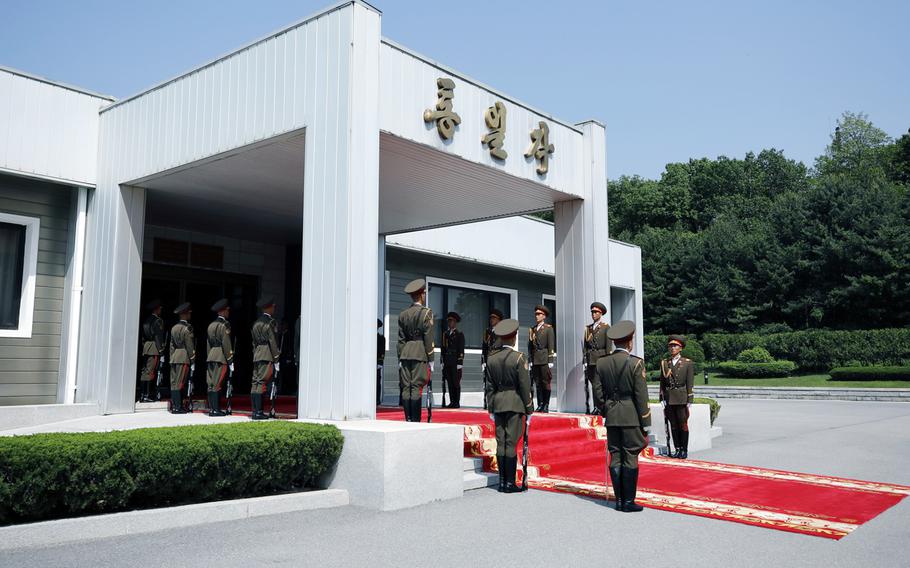
North Korea’s Panmun Hall conference building, formerly known as the Unification Pavilion, is pictured on May 26, 2018. (Blue House)
North Korea has erased another symbol of reconciliation with the South, renaming a key building in the Demilitarized Zone and removing signage promoting reunification, South Korea’s Unification Ministry said this week.
The building, previously known as the Unification Pavilion, was renamed Panmun Hall sometime in 2024, ministry spokesman Koo Byongsam said at a news conference Monday in Seoul. A sign bearing the former name was taken down in January 2024 and replaced with the new one about seven months later, he said.
The move is part of a broader campaign by Pyongyang to strip away references to reunifying the Korean Peninsula, Koo said.
The Unification Ministry has not yet decided whether it will update the building’s name on its official website, a second spokesman said by phone Wednesday. Some South Korean government officials speak to the media on condition of anonymity.
The Unification Pavilion was built in 1985 on the northern side of the Joint Security Area within the heavily fortified DMZ. North Korean leader Kim Jong Un and then-South Korean President Moon Jae-in met there for their second summit in 2018.
Other buildings north of the Military Demarcation Line, which divides the Korean Peninsula, include a North Korean army barracks and Panmungak, a three-story structure that towers behind the iconic, blue U.N.-guarded huts along the border.
South of the line are the Peace House and Freedom House inter-Korean conference buildings, and a U.N. Command barracks.
On Jan. 15, 2024, Kim described South Korea as the North’s principal enemy and ordered the destruction of symbols signifying reunification with Seoul, according to the state-run Korean Central News Agency.
The communist regime has since demolished several structures that once symbolized stronger ties with the South.
On Oct. 15, North Korea used explosives to destroy unused roads and railway lines running between the two countries. Four months later, the South accused the North of dismantling a 12-story resort where families separated by the 1950-53 Korean War held reunions.